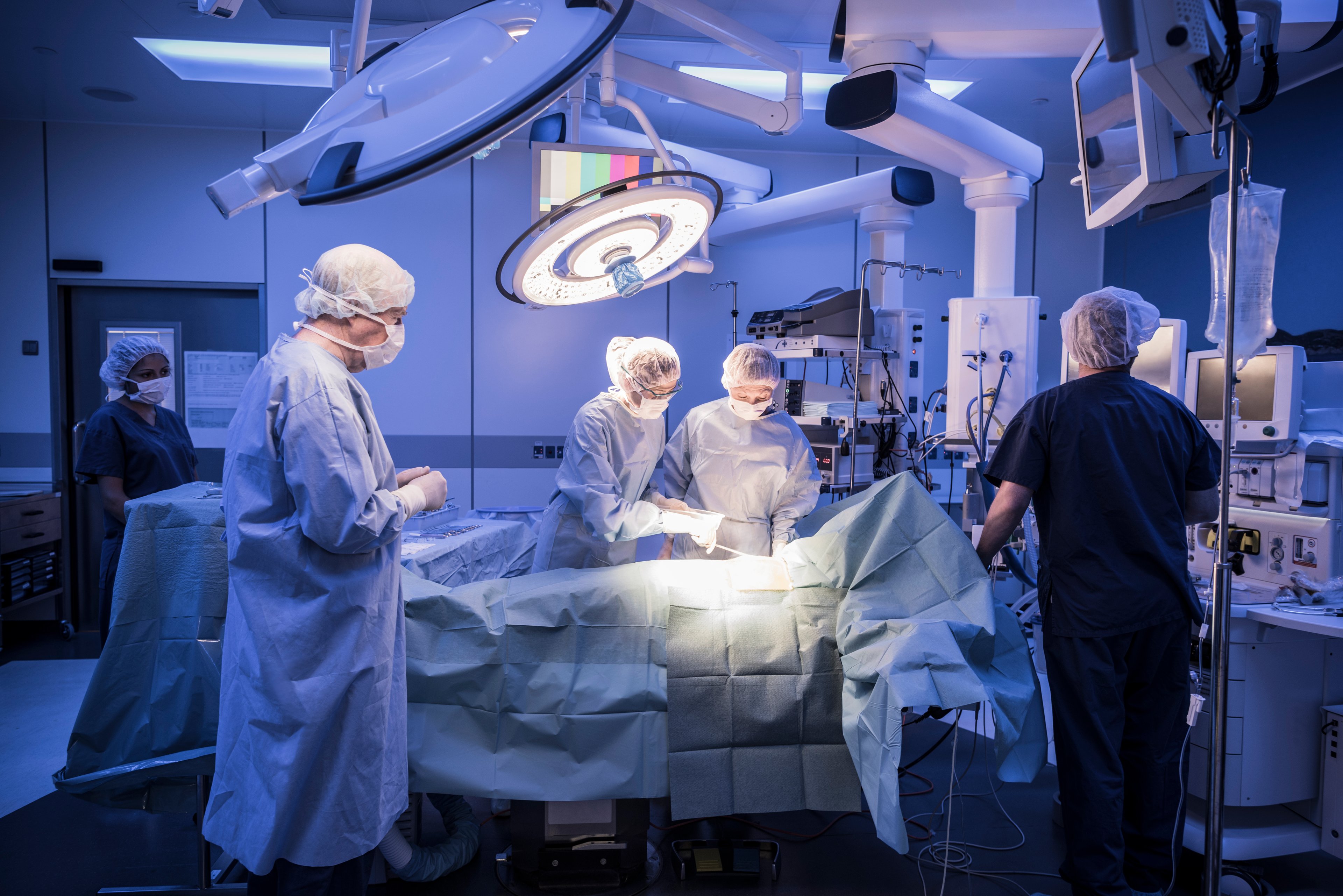It seems like there's a cottage industry on the sell-side in "What's wrong with Medtronic (MDT +1.94%)?" pieces, but the stock has actually done OK since I last wrote on the company in late February. With Covidien pretty much flat in that time and Boston Scientific (BSX +1.30%) and St. Jude Medical (STJ +0.00%) both down, drug-fueled Johnson & Johnson is one of the few peers to really exceed the company's performance (while Bard has basically kept pace).
I continue to believe that Medtronic is undervalued as a low-growth/high-quality med-tech supergiant. The company has unquestionably seen multiple significant setbacks over the last year or so, but the company still has lucrative franchises in CRM, spine, neuromodulation, and diabetes that throw off plenty of cash and allow the company to buy its way into future growth markets.
Results weren't good enough
This certainly wasn't an epic close to a fiscal year for Medtronic.
Revenue rose about 3% on an organic basis, good for a tiny beat relative to sell-side forecasts. Gross margin was a little underwhelming, falling 0.2% from last year and missing expectations by around one point. Operating income growth of 2% (and operating margin of 32.2%) was likewise weak and Medtronic missed expectations by about $0.09 per share at the operating line. The company recouped some of that with lower taxes, making for a low-quality "meet" at the EPS line.
St. Jude still gaining in CRM
As I've written in prior articles, St. Jude Medical and Boston Scientific have both put a lot of effort and financial resources toward improving the growth prospects of the CRM businesses, and I believe it is having at least a modest impact on Medtronic's business.
Medtronic reported overall Cardiac Rhythm Management growth of 2% this quarter, with ICD revenue down 2% and pacemaker revenue flat with the year-ago level. By comparison, St. Jude saw 3% and 2% growth, respectively, while Boston Scientific saw ICD revenue decline 3% and pacemaker revenue fall 1% in the first quarter.
St. Jude continues to do well with its quadrapolar devices, but Medtronic and Boston Scientific should be cutting into that growth fairly soon. That said, St. Jude does still have the recently approved Allure, Assurity, and Endurity products to help drive growth and Boston Scientific is still expecting big things from its S-ICD device. Medtronic is still a long way from "losing" CRM, and it still holds over 40% share of the global ICD market, but I think St. Jude and Boston Scientific have nevertheless made it clear that Medtronic has to fight (and continue to innovate) to keep what it has.
On a more positive note, Medtronic also reported 51% growth in its a-fib and "other" business (both reported as part of CRM). This growth was inflated by an acquisition and Medtronic is still weak in catheter-based abalation, but the company is doing well in surgical ablation and its new Reveal Linq implantable cardiac monitor is a solid little new product that has gone largely unmentioned by the Street.
Settling with Edwards likely the best (or only) option
Along with the fiscal fourth quarter earnings report, Medtronic announced a global patent settlement with Edwards Lifesciences (EW 0.16%) regarding litigation over transcatheter heart valves. Readers may recall that Edwards won a major legal victory in April when a U.S. court issued a preliminary injunction against Medtronic's CoreValve, agreeing with Edwards' claim that it infringed its '552 patent.
While Medtronic was granted a stay shortly thereafter, Medtronic was facing the very real risk of being barred from the U.S. market until 2016 or beyond, by which time the very competitive Sapien III valve would likely be on the market in the U.S.
Under this settlement and cross-licensing agreement, Medtronic gains the right to sell the CoreValve and the two companies will stop suing each other for at least eight years. Medtronic is clearly the losing party here; the agreement may officially state that neither party admits infringement, but Medtronic is the one paying $750 million to Edwards, as well as annual royalty payments on U.S. sales of the CoreValve collared between $40 million and $60 million. Given Street estimates regarding CoreValve sales, that works out to a roughly 15% to 20% royalty rate – on the high end of what is typical, but enough to still make selling the CoreValve worthwhile.
As an aside, Edwards shares have risen about $12 since the court victory, and the increase in market value is pretty close to the value of this settlement ($750 million plus eight years of $50 million/year royalties).
Still a decent opportunity
All of the bad news aside, there is still a very credible business at Medtronic. The company is well-positioned for emerging market growth (up 14% this quarter), and markets like spine, neuromodulation, surgical technologies, and diabetes should deliver many years of growth ranging from the low/mid single-digits to high single digits. CRM should also recover to a low single-digit growth rate, even with ongoing competitive efforts from St. Jude and Boston Scientific. Couple that modest long-term annual revenue growth (3%) with very efficient free cash flow generation (recent FCF margins of 20% to 27%) and Medtronic is likely to continue generating over $4.5 billion in free cash flow a year.
The bottom line
Add in a nearly 2% dividend yield and the prospect of further share repurchases and Medtronic offers credible potential for investors looking for a more sedate med-tech play. Given that the Street is fairly down on the company given its setbacks in the clinic, this could be a good opportunity to own shares in a proven performer going through a fixable lull.








